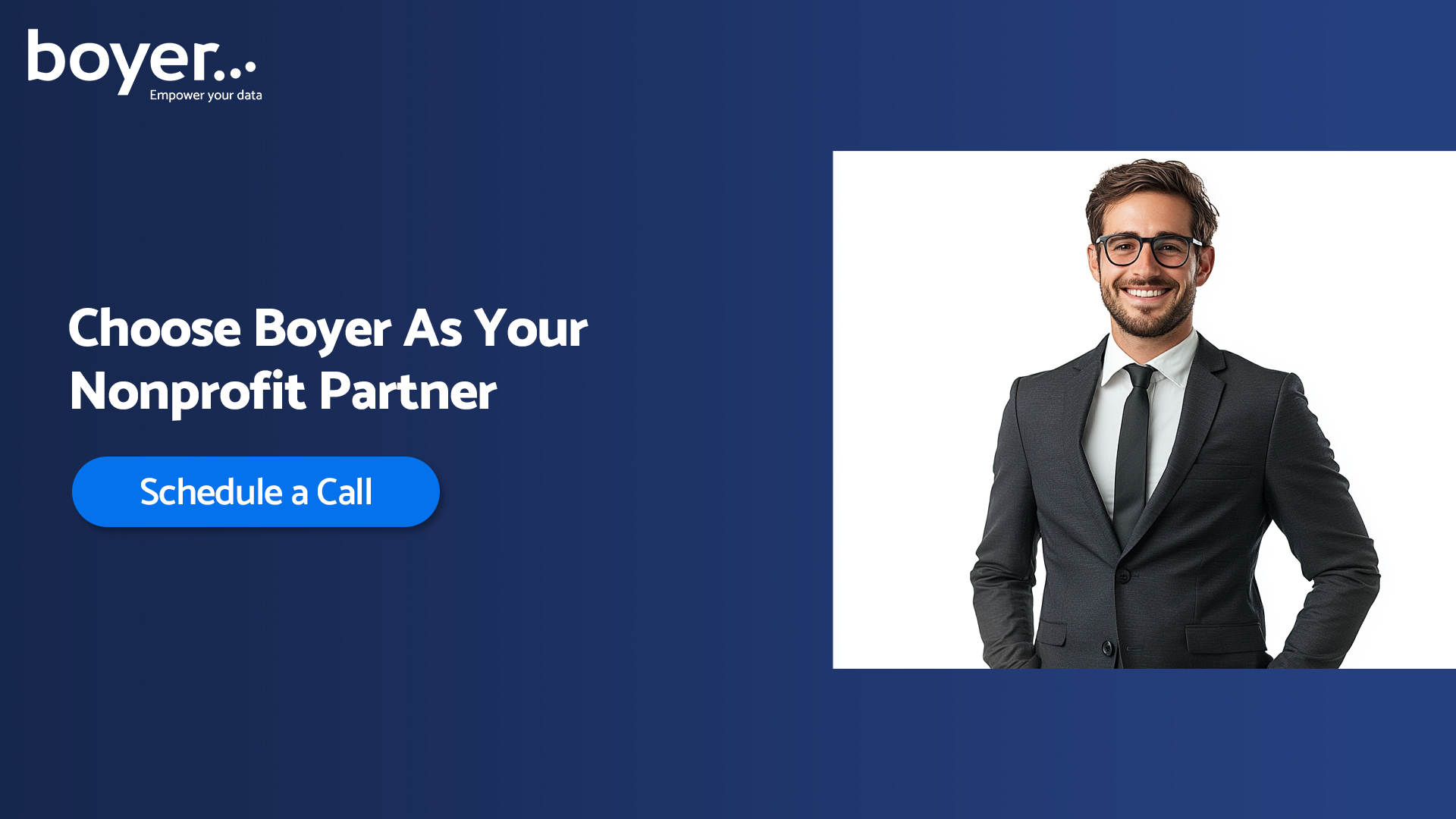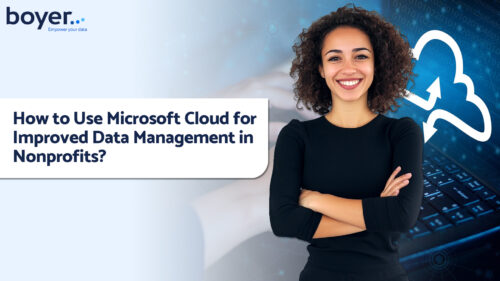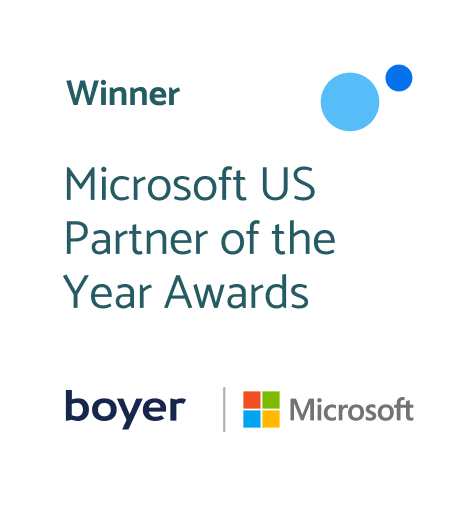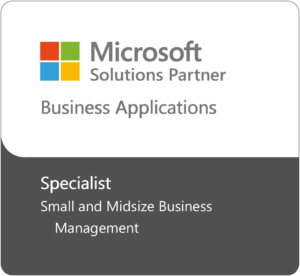Effective data management is not just a luxury—it’s a necessity. Yet, many nonprofits find themselves overwhelmed by the sheer volume of data they need to manage, from donor records to program outcomes.
Microsoft Cloud for Nonprofit empowers nonprofit organizations to create scalable, transformative impact by providing the tools they need to better manage their data. Nonprofits can address common scenarios, such as constituent and supporter management, award management, fundraising, volunteer management, program design and delivery, operations, and data management.
This unified approach allows nonprofits to benefit from critical insights and recommendations. Organizations can then effectively engage donors, connect with supporters, deliver meaningful programs, and accelerate their mission outcomes.
Harnessing the power of Microsoft Dynamics 365, Microsoft Power Platform, Microsoft 365 and Microsoft Azure, Microsoft Cloud for Nonprofit offers a holistic, connected platform. It combines these powerful solutions with the Nonprofit Common Data Model to provide best-in-class security and compliance.
Boyer & Associates can help nonprofits with this integration to empower staff and volunteers to focus on what matters most—delivering their mission. Nonprofits can do this while leveraging a diverse global partner ecosystem that extends the platform’s value with industry-specific solutions tailored to the nonprofit sector’s most pressing challenges.
Microsoft Cloud for Nonprofits
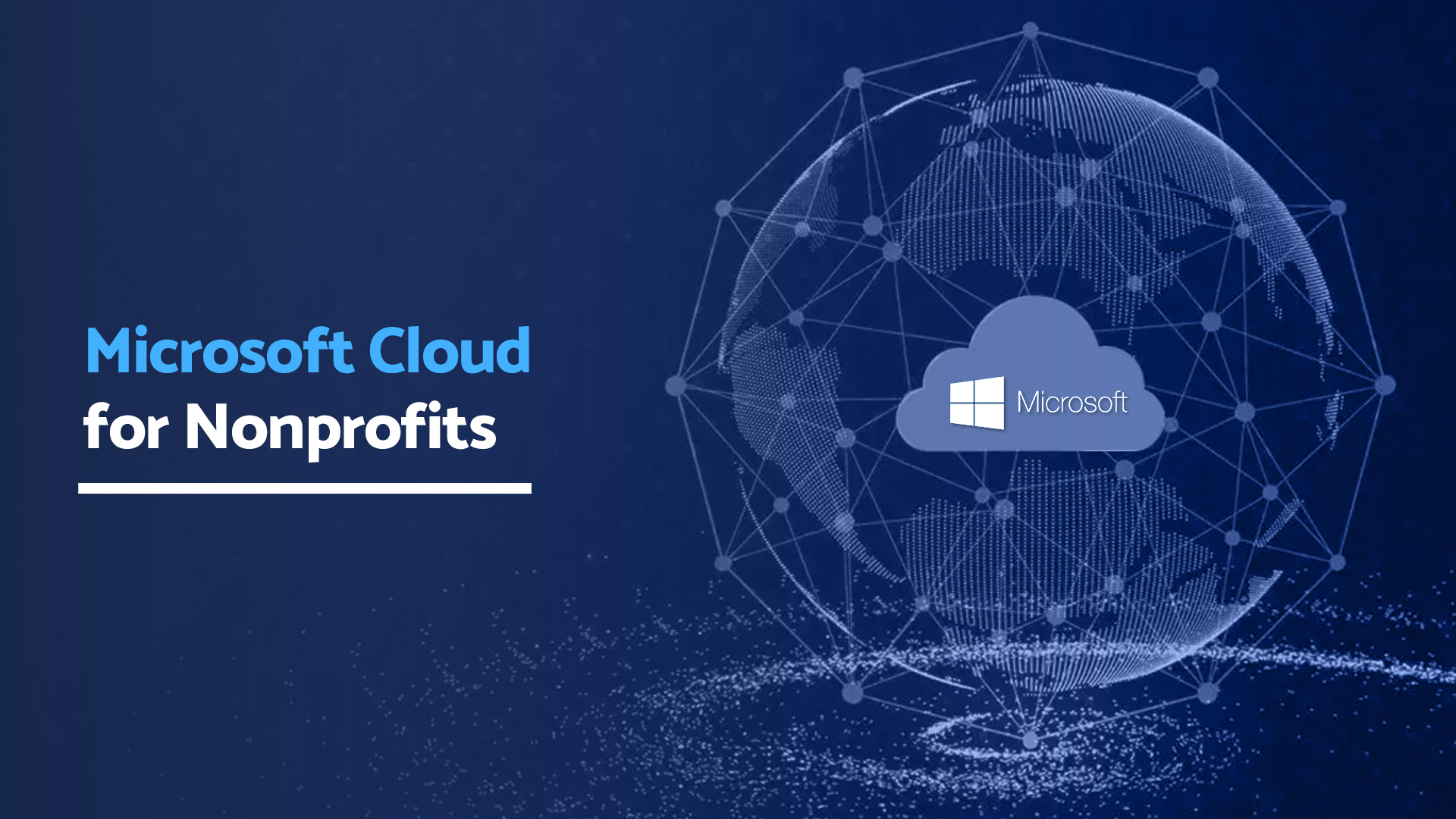
Microsoft Cloud for Nonprofits is a comprehensive suite of cloud-based tools designed to address the unique challenges faced by nonprofit organizations.
At its core, Microsoft Cloud for Nonprofits is built around the Nonprofit Common Data Model (CDM), which unifies data across different platforms, making it easier for organizations to collect, store, and analyze information. This model allows nonprofits to break down data silos and gain a holistic view of their operations, enhancing transparency and decision-making.
Key Challenges in Data Management for Nonprofits
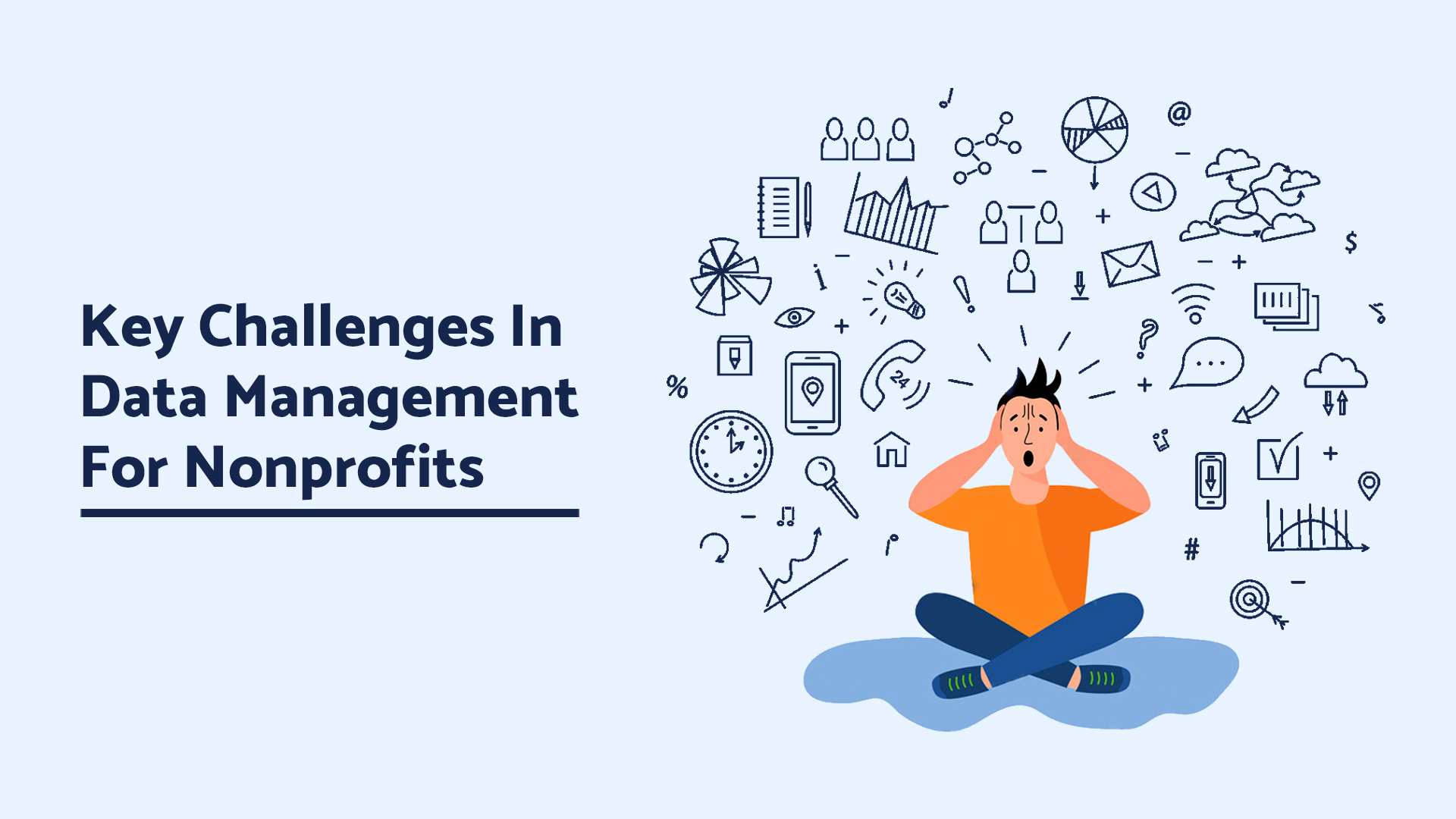
Nonprofit organizations are increasingly reliant on data to drive their missions, from tracking donations and managing volunteers to assessing program outcomes and ensuring compliance. However, effective data management in this sector presents several significant challenges:
Data Overload and Fragmentation
Nonprofits often handle vast amounts of data from diverse sources, such as donor databases, volunteer records, social media interactions, and program results. This data is typically spread across multiple systems and platforms, leading to fragmentation.
The lack of integration between these systems makes it difficult to get a comprehensive view of organizational data, which is crucial for informed decision-making.
Manual Processes and Inefficiencies
Many nonprofits still rely on manual data entry and analysis processes, which are not only time-consuming but also prone to human error. These inefficiencies can lead to inaccurate data, delayed reporting, and missed opportunities for engagement or improvement.
Automating these processes is essential but often challenging without the right tools and expertise.
Data Security and Privacy Concerns
With the increasing volume of sensitive data, including donor information and financial records, nonprofits face heightened risks related to data breaches and cyberattacks. Ensuring the security and privacy of this data is critical to maintaining trust with donors and stakeholders.
However, many nonprofits lack the resources to implement and maintain robust cybersecurity measures, leaving them vulnerable.
Lack of Technical Expertise
Data management often requires specialized skills, including knowledge of data analytics, database management, and cybersecurity. Nonprofits, especially smaller ones, may not have access to staff with these skills, leading to challenges in effectively managing and leveraging their data.
This skills gap can limit the organization’s ability to fully utilize the data they collect.
Scalability Issues
As nonprofits grow, so does the volume of data they need to manage. Scaling data management systems to handle this growth can be complex and costly.
Without scalable solutions, nonprofits may struggle to keep up with data demands, leading to inefficiencies and potential loss of valuable insights.
Compliance and Reporting Requirements
Nonprofits are often subject to strict regulatory requirements related to financial reporting, donor transparency, and program accountability. Meeting these requirements requires accurate, timely data management, which can be challenging without integrated systems that provide real-time data access and reporting capabilities
How Microsoft Cloud Addresses These Challenges
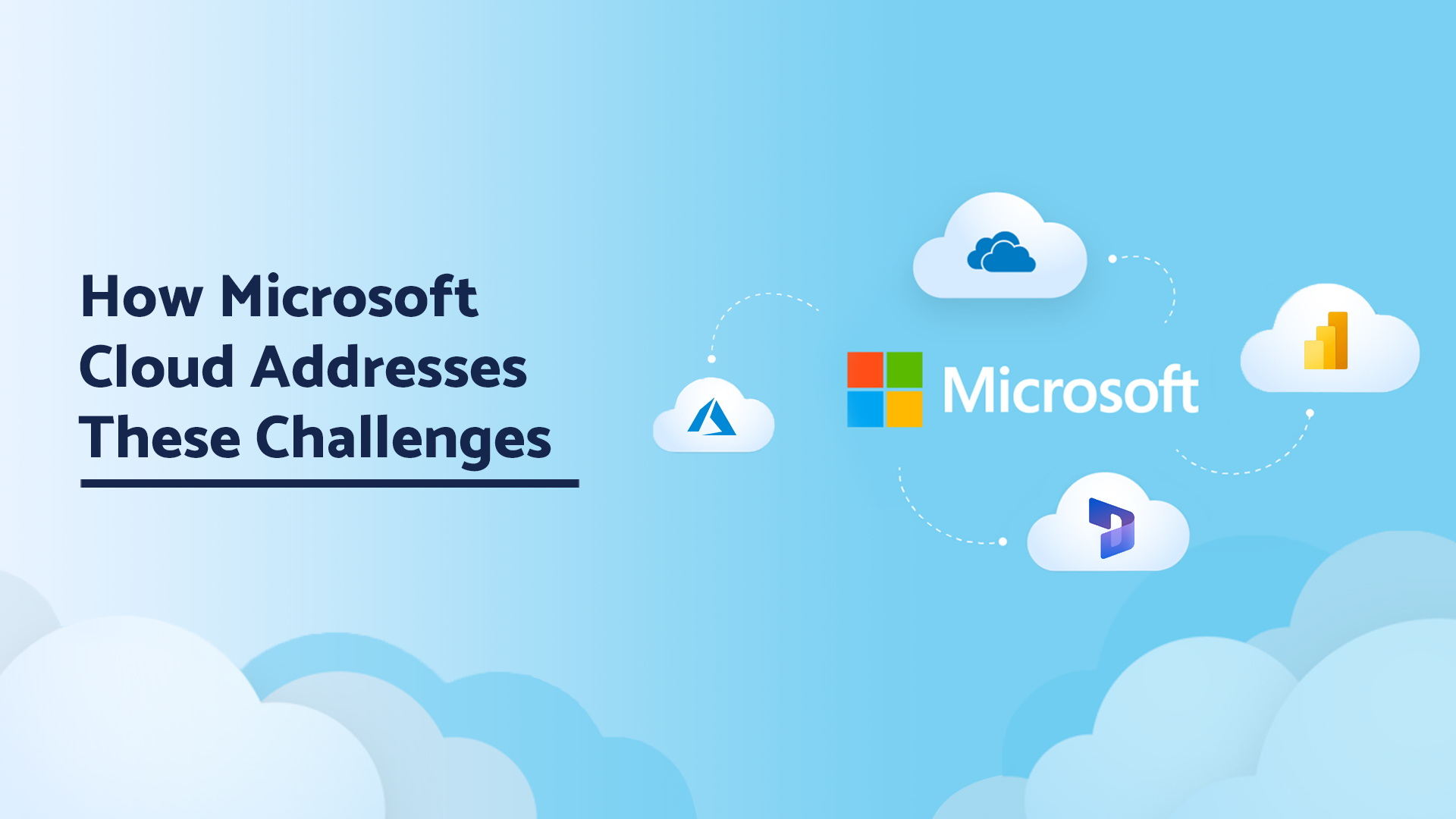
Microsoft Cloud for Nonprofits is specifically designed to tackle the unique data management challenges faced by nonprofit organizations. By leveraging the full suite of Microsoft’s cloud-based tools, nonprofits can streamline operations, enhance data security, and improve overall efficiency.
Here’s how Microsoft Cloud for Nonprofit addresses each of the key challenges:
Centralized Data Management to Overcome Fragmentation
Microsoft Cloud for Nonprofits integrates various platforms such as Dynamics 365, Power Platform, and Azure, allowing nonprofits to unify data across different systems. This centralized approach eliminates data silos, making it easier to manage and analyze data in one place.
The use of the Nonprofit Common Data Model (CDM) further standardizes data, ensuring consistency and reliability across the organization.
Automation to Replace Manual Processes
The Microsoft Cloud automates many of the routine and repetitive tasks that nonprofits typically handle manually, such as data entry, reporting, and analysis. With tools like Power BI and Microsoft Dynamics 365, nonprofits can generate real-time reports and insights without the need for extensive manual intervention.
This not only saves time but also reduces the risk of human error, leading to more accurate and timely data.
Advanced Security Features to Protect Sensitive Data
Security is a top priority for Microsoft Cloud, which offers built-in, enterprise-grade security features to protect nonprofit data. Azure provides robust encryption, identity management, and threat detection capabilities. This ensures that sensitive information, such as donor records and financial data, is secure from cyber threats.
Additionally, Microsoft Cloud helps nonprofits comply with data protection regulations, further safeguarding their reputation and stakeholder trust.
User-Friendly Tools to Bridge the Technical Expertise Gap
Microsoft Cloud for Nonprofits is designed with accessibility in mind, offering intuitive interfaces and AI-driven insights that can be easily used by staff with varying levels of technical expertise. Tools like Power Apps allow users to create custom applications without needing deep programming knowledge.
Then, Microsoft Teams facilitates collaboration across the organization, ensuring that all team members can contribute effectively.
Scalability to Support Organizational Growth
As nonprofits expand, Microsoft Cloud offers scalable solutions that grow with the organization. Whether it’s increasing data storage with Azure or expanding program management capabilities with Dynamics 365, nonprofits can easily scale their operations without significant additional investment.
This flexibility ensures that nonprofits can continue to manage their data effectively, even as their needs evolve.
Enhanced Compliance and Reporting
Microsoft Cloud’s integrated tools make it easier for nonprofits to meet compliance and reporting requirements. Power BI, for instance, allows for the creation of detailed, real-time reports that can be customized to meet specific regulatory standards.
This ensures that nonprofits can demonstrate transparency and accountability to donors, regulators, and other stakeholders.
Practical Applications of Microsoft Cloud in Nonprofits
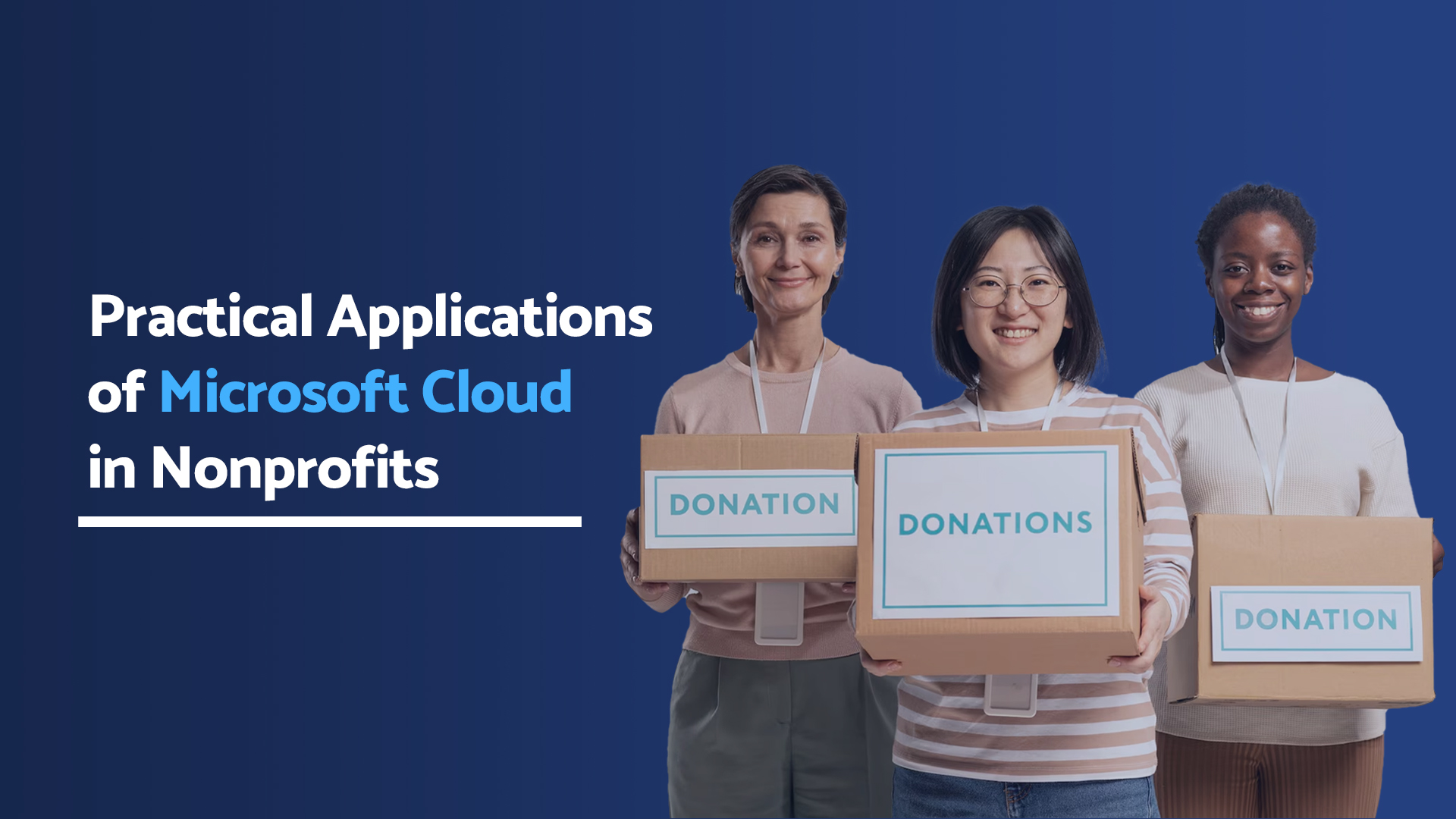
Microsoft Cloud for Nonprofits empowers organizations to operate more efficiently and make data-driven decisions that enhance their mission impact. By integrating tools like Dynamics 365, Power Platform, and Azure, nonprofits can streamline donor management, improve volunteer coordination, and enhance program delivery.
For instance, Dynamics 365 enables personalized donor engagement. Power BI provides real-time insights into program outcomes, helping organizations to adapt and optimize their strategies. Azure’s robust security features ensure that sensitive data is protected, allowing nonprofits to build and maintain trust with their stakeholders.
- Donor Management: Use Dynamics 365 to personalize and optimize donor interactions.
- Volunteer Coordination: Streamline volunteer recruitment and management with Power Platform.
- Program Delivery: Leverage Power BI for real-time insights into program effectiveness.
- Data Security: Protect sensitive information with Azure’s enterprise-grade security features.
- Scalability: Easily scale your operations with Microsoft Cloud as your nonprofit grows.
Choose Boyer As Your Nonprofit Partner
Implementing Microsoft Cloud for your nonprofit is a strategic move that can revolutionize how you manage data, engage with donors, and deliver impactful programs. Boyer & Associates is here to guide you through every step of this journey.
From assessing your organization’s unique needs and selecting the right cloud solutions to deploying the technology and training your staff, Boyer ensures a seamless transition. Our ongoing support and optimization services help you scale and refine your systems. This ensures that your nonprofit remains efficient, secure, and poised for growth.
With Boyer’s expertise, you can fully leverage the Microsoft Cloud to drive your mission forward, making a greater impact with greater efficiency.
